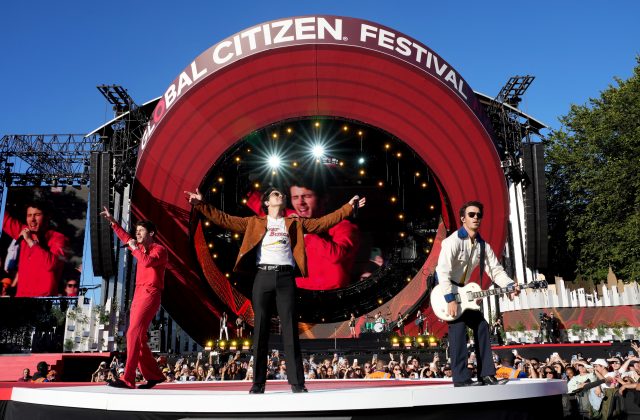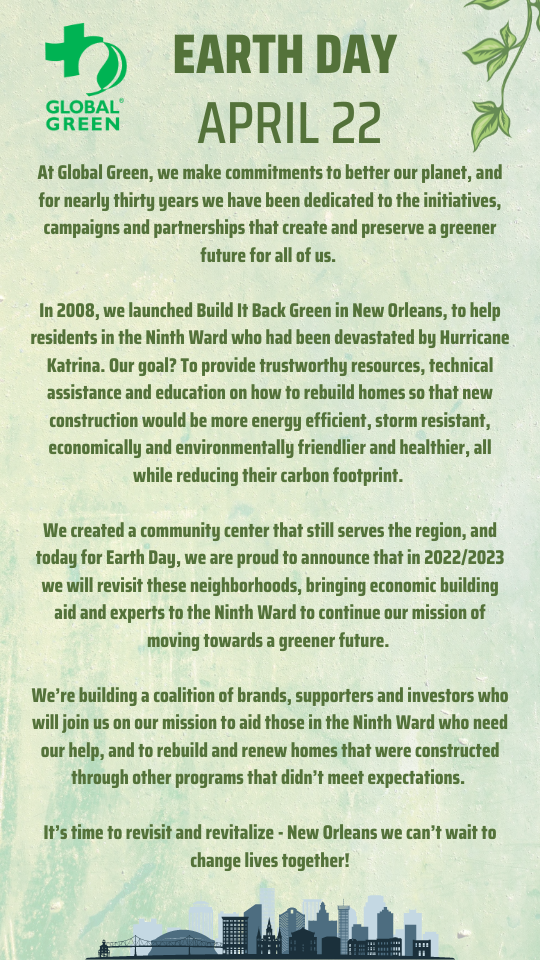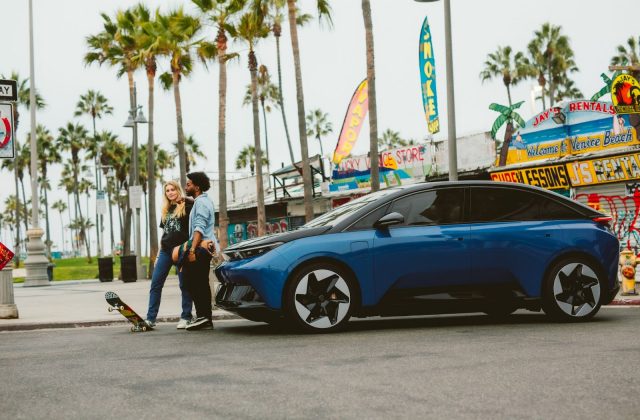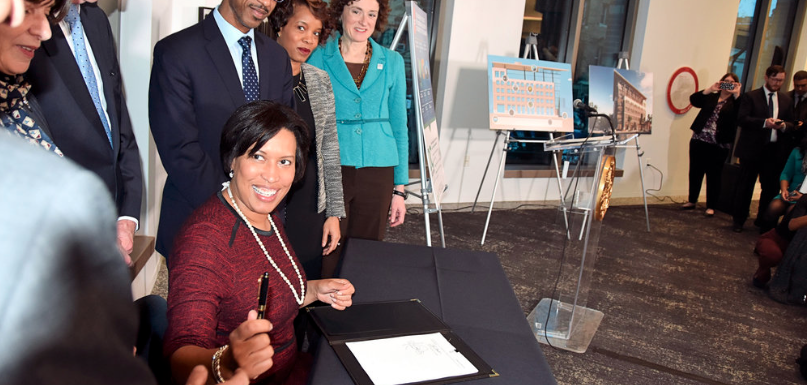
CHRIS WEISS JANUARY 31, 2019
Earth2Green’s D.C. Office Helps Pass New Climate Bill in the Nation’s Capital.
A rising tide may lift all boats, but it can also drown the people left ashore.
The Trump Administration recently released a hefty new report finding devastating impacts of climate change across the country — including here in DC. We can expect to see “hellish heat and high water,” in DC according to the Washington Post’s summary of the report. This means more people will get sick from heat waves, and major flooding events will soon become the norm.
At the same time, many in DC are already struggling to stay afloat — especially lower-income residents and the Districts smaller, local, community-based businesses. The District’s poorest wards continue to experience near double digit unemployment, and 40% of its children rely on our school system for much of their nutritional needs.
Now, we have a meaningful answer to these challenges that can bring some hope in the form of new clean energy jobs and meaningful carbon reductions in the District.
For over 20 years the DC Environmental Network, spearheaded by Earth2Green, has been working to put the infrastructure and policies in place to grow a clean energy economy, reduce carbon emissions, and prepare for the worst impacts of climate change. We worked to create the District Department of Energy and Environment (DOEE) to implement important policies to reduce carbon emissions; we helped create the original Renewable Portfolio Standard (RPS); and led numerous campaigns designed to make our nation’s capital city more sustainable.
On December 18th, we reached an important milestone when the DC Council, in the shadow of the Trump White House, passed the strongest renewable energy targets in the country, 100% renewable sources by 2032. DC Mayor Muriel Bowser signed the bill into law on January 18th. Our DC Environmental Network played an important leadership role in making this happen.
The programs in the bill speeds up efforts to hit 40% by around 2023/2024. The first step towards reaching 100% renewable sources by 2032.This common-sense bill will reduce carbon emissions in the District in four distinct ways.
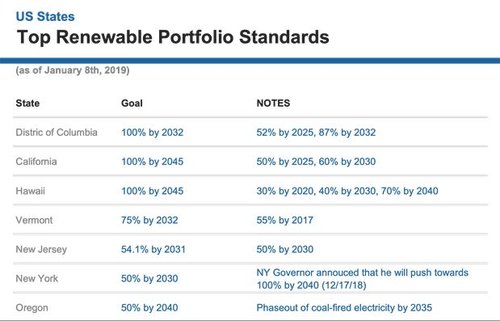
First, it will transition the District to 100 percent renewable electricity by 2032 through the city’s Renewable Portfolio Standard, which will not only help residents and businesses transition to clean energy, it will support thousands of new jobs as well. The majority of jobs in solar power and energy efficiency do not require a college degree, offer on-the-job training, and are well paying. Simply put, this climate bill is also a jobs bill — with healthy and good paying jobs for DC residents.
Secondly, the bill will increase the Sustainable Energy Trust Fund (SETF) fee on fossil fuels in order to address dirty electricity, natural gas and fuel oil consumption, which will, in turn, be used to fund the planned DC Green Bank and other programs. Beyond the Green Bank, additional revenue will be used by the DC Department of Energy and Environment and the DC Sustainable Energy Utility to fund energy efficiency and renewable energy incentives for DC building owners. And, 30% of the revenue will be targeted to fund projects and rate-payer relief for low-income households, with $3 million annually specifically carved out to support energy projects for affordable housing buildings.
Third, this bill will establish a new Building Energy Performance Standard for existing buildings. The District boasts an impressive history of green building policies to cover new construction projects, but historically has not had sufficient policies to promote efficiency in existing buildings–hence the need for the new building standard established in the bill. By phasing in this first-of-its-kind standard over a six-year period for all District and privately-owned buildings over 10,000 square feet, this bill addresses the fundamental challenge of existing building energy consumption in a way that is conscious of the unique challenges facing small businesses – the smaller the building, the longer owners will have to comply with these new regulations.
The final piece of this puzzle is transportation. Vehicular emissions alone account for more than twenty percent of all greenhouse gas emissions in the District. This bill seeks to reign in those emissions by tying the city’s excise tax on newly-purchased cars to fuel efficiency. In practice, that means that a District owner of a shiny new Hummer can expect to pay significantly more to register their gas guzzler than the new owner of a low-emissions or electric vehicle.
Together, these four provisions will reduce carbon emissions in the District by more than 40 percent while also growing DC’s economy. DC is now a leader in fighting climate change.
![GG Logo[Green].png](https://static1.squarespace.com/static/5548ed90e4b0b0a763d0e704/5c537c1371c10b9ce57498e6/5c537c147817f73679b89d9f/1548975128040/GG+Logo%5BGreen%5D.png?format=100w)

